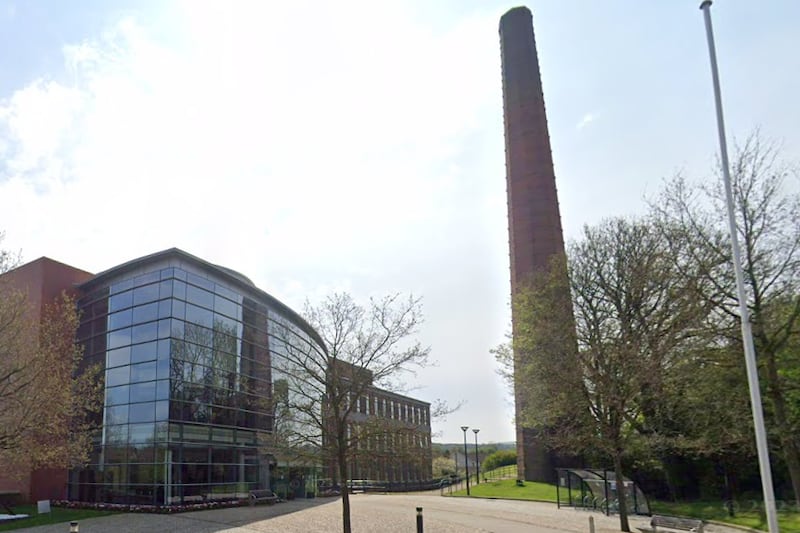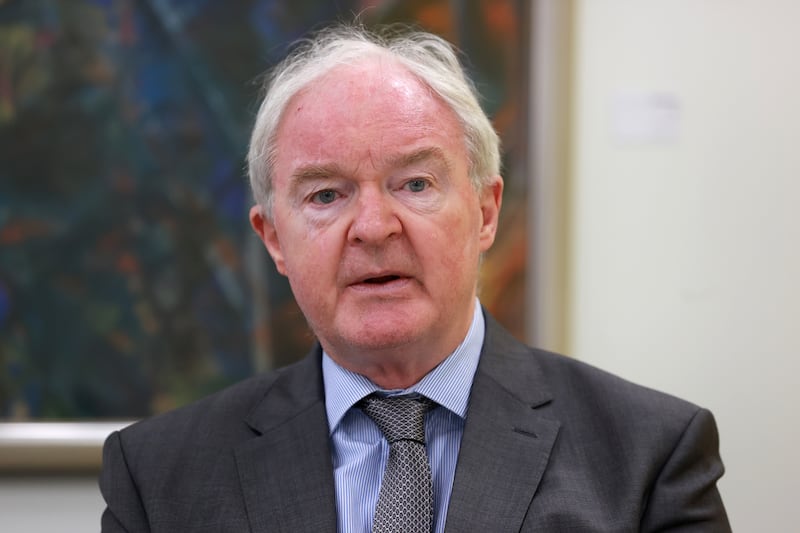Northern Ireland's Director of Public Prosecutions has announced he is to step down from the post but insisted he has not been forced out of office over controversial legacy cases.
Barra McGrory QC said he regrets that the legacy issue "has become the story" of his tenure and admitted that dealing with cases related to the Troubles was "an unanticipated aspect of the job".
Mr McGrory said he had always intended to leave the post after five or six years to go back to practising at the Bar.
Announcing his intention to step down in September Mr McGrory insisted his decision was "absolutely not because of legacy".
He has faced a storm of criticism over the prosecution of former soldiers for killings during the Troubles.
Earlier this month unionists called for his resignation after prosecutors re-instated attempted murder charges against ex-soldier Dennis Hutchings, 75, over the 1974 shooting of John-Pat Cunningham.
Previously, a judge had said there was insufficient evidence to proceed with the charge against Hutchings.
Mr McGrory said the legacy issue is going to be a difficult one for any prosecutor to deal with.
"If all of the legacy controversy had not happened we would still be having this conversation," said Mr McGrory.
He added: "My heart lies in the representative role. I left that with the intention of returning to it. (I have) absolutely not been pushed out because of legacy.
"Legacy is going to be difficult for any prosecutor because the conflict will be relived in some senses. All decisions will be viewed through the prism of the different communities' views."
Mr McGrory also said he "regrets that legacy has become the story of my tenure here".
He added: "It was an unanticipated aspect of the job.
"I wish the political architects of the peace process had dealt with legacy."
Mr McGrory became the first Catholic to hold the post of Director of Public Prosecutions when he was appointed in November 2011.
He said it has been "an honour" to lead the PPS.
He added that if he had his time over again he "would not have approached the job any differently".
A competition to appoint his successor will begin in the near future. The appointment will be made by the Attorney General.
Sources close to the director said that hopefully the next prosecutor will not receive "some of the personal abuse" that Mr McGrory had.
In the last year, Mr McGrory has been criticised in some national newspapers and at Westminster amid claims of a "witch hunt" against former British soldiers in Troubles-era cases.
Unionist and Conservative MPs had claimed that cases involving former soldiers have been unfairly prioritised.
Ulster Unionist Danny Kinahan has called for Mr McGrory's resignation while the DUP's Sir Jeffrey Donaldson has said he is concerned about the PPS' impartiality.
However, Mr McGrory rejected the claims and said those who made the allegations were being "insulting to this office and to the lawyers who work here".
Earlier this year, he said there had been only three prosecutorial decisions involving former soldiers in recent times - two of which resulted in prosecutions.
He said given around 40,000 files were passed to the PPS each year, the number of cases against former soldiers was relatively low.
"In the overall context of what we do these are a tiny number of cases," he told the BBC.
And he pointed out that "we have prosecuted more legacy cases connected with paramilitary cases than we have in respect of military cases".
It emerged last week that prosecutors are considering whether 18 soldiers should be charged over their involvement in Bloody Sunday.
Mr McGrory, who is originally from north Belfast, trained as a solicitor in his father's practice PJ McGrory in Andersonstown, west Belfast.
As a solicitor, he represented Sinn Féin president Gerry Adams and other senior republicans as well as UVF 'supergrasses' Ian and Robert Stewart.
He was Northern Ireland's first solicitor to be made queen's counsel.








